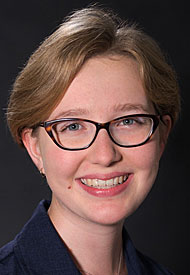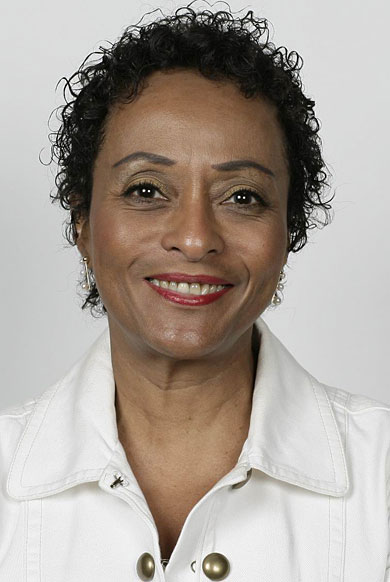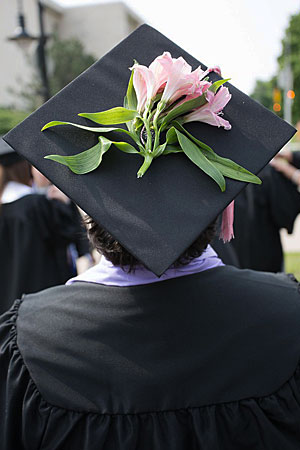Strong interests in atmospheric science helped Lawrence University junior Elizabeth Bridgwater be named an Ernest F. Hollings Undergraduate Scholar.

A chemistry and environmental studies major from Fort Collins, Colo., Bridgwater was one of 150 undergraduates nationally selected for the scholarship. Named in honor of long-time former U.S. Senator Ernest “Fritz” Hollings, who was well known for supporting ocean policy and conservation, the award includes a two-year academic scholarship and a summer internship opportunity.
“I’m really excited about this opportunity,” said Bridgwater, who recently met with scientists from the National Oceanic and Atmospheric Administration in Washington, D.C. to discuss internship possibilities for next summer. “I’m particularly interested in it for its environmental applications.
“It was amazing to learn about all of the work that goes into predicting and understanding our weather and climate, protecting our oceans and coasts and sharing this information with policymakers in Washington and communities,” she added. “As someone who has developed a passion for understanding how our behaviors influence both air quality and climate change, I feel really grateful for the opportunity to engage with the incredible work being done at NOAA.”
As a Hollings Scholar, Bridgwater will receive a $9,500 academic award for each of the next two years and a 10-week, full-time, paid summer internship, including travel expenses, at any NOAA facility nationwide in the summer of 2019. She also will receive funding to present the results of her NOAA research project at up to two national scientific conferences. Later this year, she will choose from a variety of internships and connect with the mentor associated with that project.
“As I learn more as a scientist, something I work to keep in perspective is that certain communities, particularly communities of color and low-income communities, face disproportionate levels of pollution and public health concerns.”
— Elizabeth Bridgewater
Bridgwater’s interests in becoming a scientist are motivated in part by her desire to improve the health and quality of local communities through a better understanding of the world around us.
“NOAA is a really cool organization in that the scientific work done there is ultimately geared toward serving the United States and protecting the resources and ecosystems that are vital to our daily lives,” said Bridgwater. “I feel lucky and honored for this chance to be a part of that science and to continue developing as a scientist so I can help people in the future.”
Her long-term goals have Bridgwater pursuing graduate studies with an eventual eye on working on public policy.
“I’m interested in going to grad school for atmospheric science and to develop expertise in that field. But at some point, I would like to engage with the policy side of things and to take on a leadership role that will allow me to influence the decisions we make about air quality and climate change.
“As I learn more as a scientist, something I work to keep in perspective is that certain communities, particularly communities of color and low-income communities, face disproportionate levels of pollution and public health concerns,” she added. “It is really important for scientists and policymakers alike to incorporate an understanding of environmental justice issues into their work so that as we better understand and alleviate the challenges of environmental degradation that these communities receive the attention and resources they deserve.”
The Hollings Scholarship was established in 2005. Bridgwater was selected from among more than 600 eligible applications nationwide.
About Lawrence University
Founded in 1847, Lawrence University uniquely integrates a college of liberal arts and sciences with a nationally recognized conservatory of music, both devoted exclusively to undergraduate education. It was selected for inclusion in the book “Colleges That Change Lives: 40 Schools That Will Change the Way You Think About College.” Engaged learning, the development of multiple interests and community outreach are central to the Lawrence experience. Lawrence draws its 1,500 students from nearly every state and more than 50 countries.

